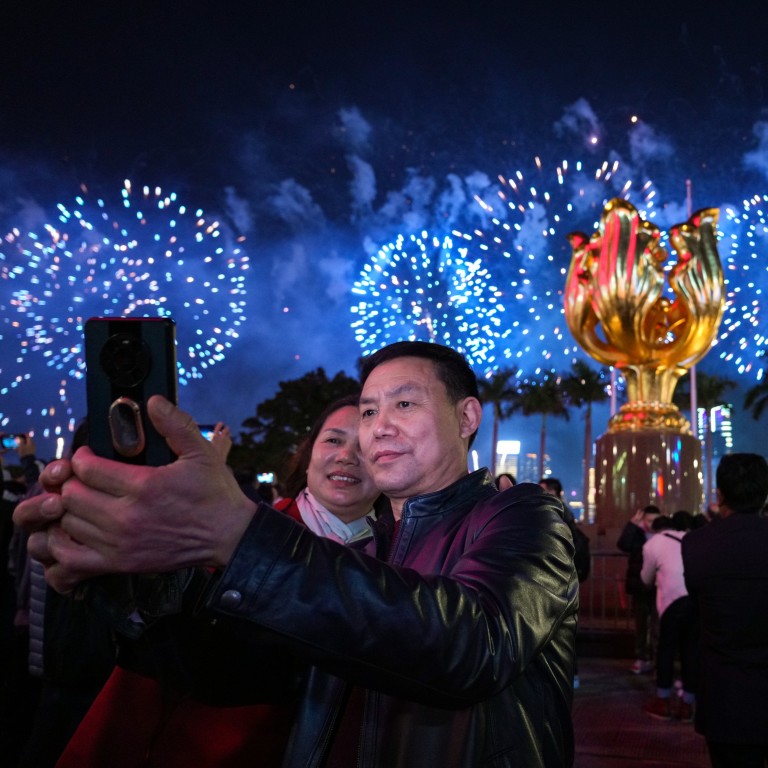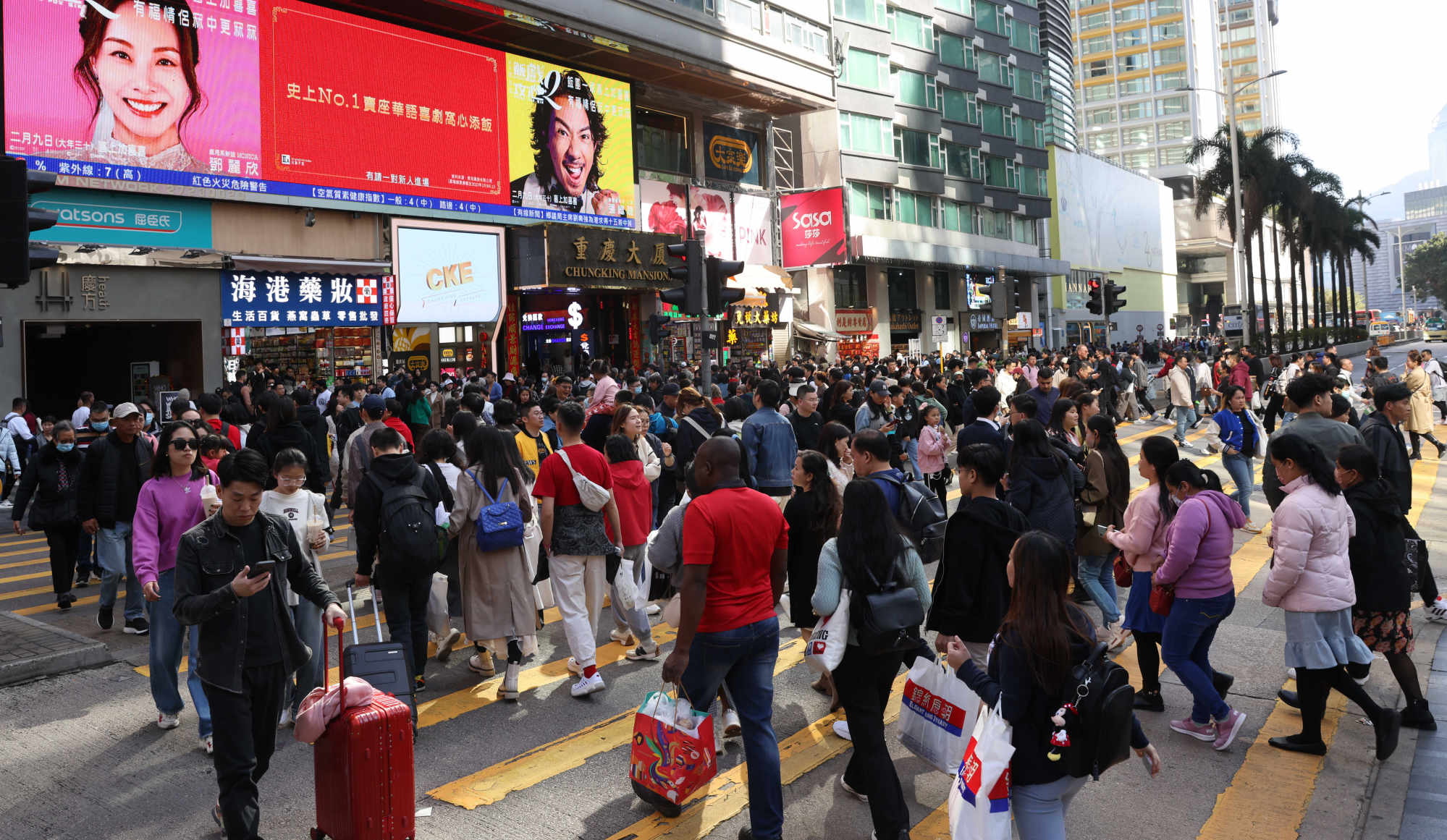
Hong Kong budget 2024-25: arrivals to hit 70% of pre-pandemic levels by end of 2024, Tourism Board says
- Board estimates 46 million tourists will visit this year, 35 per cent higher than in 2023, but only representing 70 per cent of 2018 number
- Government has budgeted HK$1.5 billion to promote Hong Kong as a destination for ‘high-value tourists’
Hong Kong’s tourism arrivals will recover to 70 per cent of pre-pandemic levels by the end of this year, according to official estimates, as the city aims to boost its economy by drawing more “high-value visitors”.
The Hong Kong Tourism Board forecast 46 million people would visit the city in 2024, 35 per cent higher than last year, but only representing 70 per cent of the 65 million tourists in 2018, according to a supplementary budget document.
The board budgeted HK$1.5 billion (US$191.7 million) to promote Hong Kong as a tourism destination for “high-value tourists” as it anticipated spending for each overnight visitor per capita to shrink as much as 16.4 per cent to HK$5,800 this year from HK$6,939 in 2023.

It also expected visitors would spend a shorter time in Hong Kong, at 3.2 nights this year compared with 3.6 nights in 2023.
While it did not set targets for the number of visitors expected to stay overnight, data from the board showed that half of the tourists in 2023 were day trippers.
The forecast was part of a broader budget plan presented by Financial Secretary Paul Chan Mo-po on Wednesday that sought to prioritise stimulating the economy through tourism.
“Hong Kong is in its second year of the post-Covid recovery. It will take a longer time to return to the previous level – case in point is Singapore,” a source familiar with the situation said.
Singapore’s tourist arrivals in 2023 returned to 71 per cent of 2019 levels.
Envy over Singapore’s Swift deal set to accelerate neighbours’ tourism plans
Hong Kong’s inbound tourism failed to recover as quickly as the government anticipated last year as flight capacity had not been fully restored, while tourists from across the border – who made up the majority – no longer splurge on luxury as they used to do.
Chan will roll out a new round of publicity measures to promote Hong Kong as a top tourist destination, including producing television reality shows and rewarding outstanding frontline staff in the hospitality sector.
Other initiatives include holding pyrotechnic and drone shows every month and a revamped daily light-and-sound show, “A Symphony of Lights”, at Victoria Harbour.
Hong Kong sets aside HK$1.09 billion in drive for more tourism events
He earmarked HK$1.09 billion to develop the city’s tourism this year and believed the extra funding would produce short-term economic growth.
Chan added that the pyrotechnic shows would be designed with different themes and along with mega events, as he sought to quell some lawmakers’ doubts on the viability of the events at a Legislative Council’s Finance Committee meeting on Thursday.
He said each show cost about HK$1 million and the government would seek private sponsorship.
The government’s Information Services Department, which is responsible for public relations, had estimated it would spend HK$179.2 million on promoting a “favourable image” of Hong Kong globally and on the mainland.
The department said it aimed to sponsor 150 visitors, up from 70 in 2023, to tour the city and host 200 speaking engagements outside Hong Kong, but it did not elaborate about how much each initiative would cost.
Wealthy and travellers targeted by Hong Kong’s new revenue-boosting measures
Meanwhile, Chan also announced the reintroduction of a 3 per cent tax on hotel accommodation charges set for January 1 next year, 17 years after the government waived the fee in July 2008.
“If the government has levied this charge supported by a lot of data and considerations, they must be very confident with the prospects,” Gianna Hsu Wong Mei-lun, chairwoman of the Travel Industry Council, told the Post.
Hsu said the levy was relatively mild compared with other regions.
Teddy Chung Wai-tong, a founding chairman of the Hong Kong Tourism Association, said the levy contradicted the government’s drive to attract more visitors.
“Hong Kong does not have the competitiveness we used to have, we need to catch up quickly,” Chung said.
Macau charges a tourism tax of 5 per cent for hotels graded three stars or above, and establishments such as health clubs, massage parlours and karaoke places.
Additional reporting by Willa Wu



